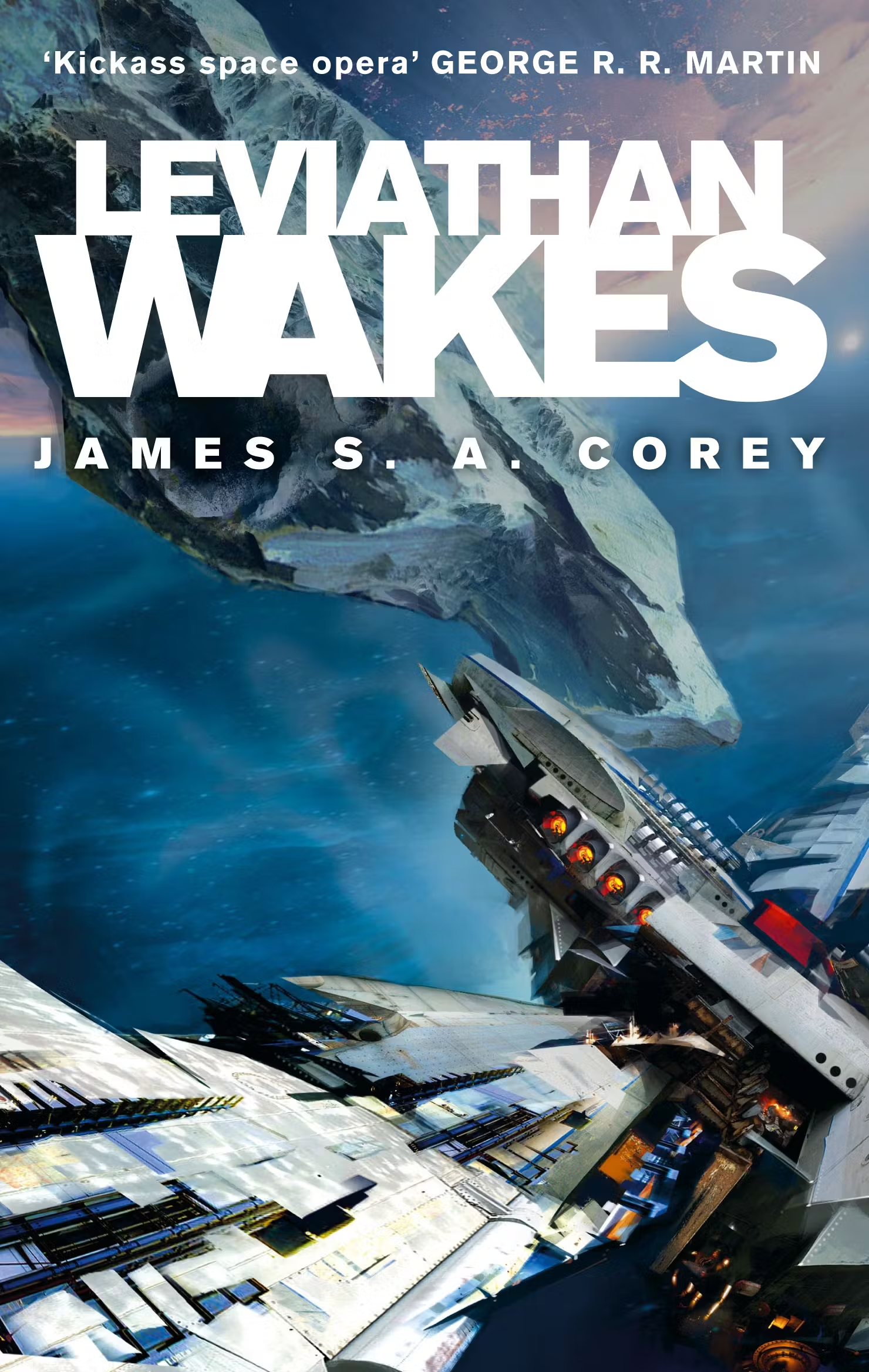Highlights from Leviathan Wakes by James S.A. Corey

Highlights from this book
-
empty colors dance and ignored their content. Mentally, he was holding up his problem, turning it one way and then the other, not even looking for an answer. It was a simple mental exercise. Look at the facts without judgment: Havelock was an Earther. Havelock was in a portside bar again and looking for a fight. Havelock was his partner. Statement after statement, fact after fact, facet after facet. He didn’t try to put them in order or make some kind of narrative out of them; that would all come later. Now it was enough to wash the day’s cases out of his head and get ready for the immediate situation. By the time the tube reached his station, he felt centered. Like he was walking on his whole foot, was how he’d described it, back when he had anyone to describe it to.
-
The beautiful thing about losing your illusions, he thought, was that you got to stop pretending. All the years he’d told himself that he was respected, that he was good at his job, that all his sacrifices had been made for a reason fell away and left him with the clear, unmuddied knowledge that he was a functional alcoholic who had pared away everything good in his own life to make room for anesthetic. Shaddid thought he was a joke. Muss thought he was the price she paid not to sleep with someone she didn’t like. The only one who might have any respect for him at all was Havelock, an Earther. It was peaceful, in its way. He could stop making the effort to keep up appearances. If he stayed in bed listening to the alarm drone, he was just living up to expectations. No shame in that.
-
Posthuman. It was a word that came up in the media every five or six years, and it meant different things every time. Neural regrowth hormone? Posthuman. Sex robots with inbuilt pseudo intelligence? Posthuman. Self-optimizing network routing? Posthuman. It was a word from advertising copy, breathless and empty, and all he’d ever thought it really meant was that the people using it had a limited imagination about what exactly humans were capable of.
-
Maybe Miller had gotten it wrong from the start, and the divide between the Belt and the inner planets was something besides politics and resource management. He knew as well as anyone that the Belt offered a harder, more dangerous life than Mars or Earth provided. And yet it called these people—the best people—out of humanity’s gravity wells to cast themselves into the darkness. The impulse to explore, to stretch, to leave home. To go as far as possible out into the universe
-
Mars would survive, for a while. Pockets of the Belt would hold out even longer, probably. They had a culture of making do, surviving on scraps, living on the bleeding edge of their resources. But in the end, without Earth, everything would eventually die. Humans had been out of the gravity well a long time. Long enough to have developed the technology to cut that umbilical cord, but they’d just never bothered to do it. Stagnant. Humanity, for all its desire to fling itself into every livable pocket it could reach, had become stagnant. Satisfied to fly around in ships built half a century before, using technology that hadn’t changed in longer than that.
-
“I’m afraid,” she said. “Don’t be,” he said. “I don’t know what’s going to happen,” she said. “No one ever does. And, look, you don’t have to do this alone,” he said.
-
“And you’ll tell them about him, right?” Holden said. “Miller. He deserves the credit.” “The Belter who went back into Eros of his own free will in order to save Earth? You’re damn right I’m going to tell them about him.” “Not ‘the Belter.’ Him. Josephus Aloisus Miller.” Holden had stopped eating the free strawberries. Fred crossed his arms. “You’ve been reading up,” Fred said. “Yeah. Well. I didn’t know him all that well.” “Neither did anybody else,” Fred said, and then softened a little. “I know it’s hard, but we don’t need a real man with a complex life. We need a symbol of the Belt. An icon.” “Sir,” the secretary said. “We really do need to go now.” “That’s what got us here,” Holden said. “Icons. Symbols. People without names. All of those Protogen scientists were thinking about biomass and populations. Not Mary who worked in supply and raised flowers in her spare time. None of them killed her.”